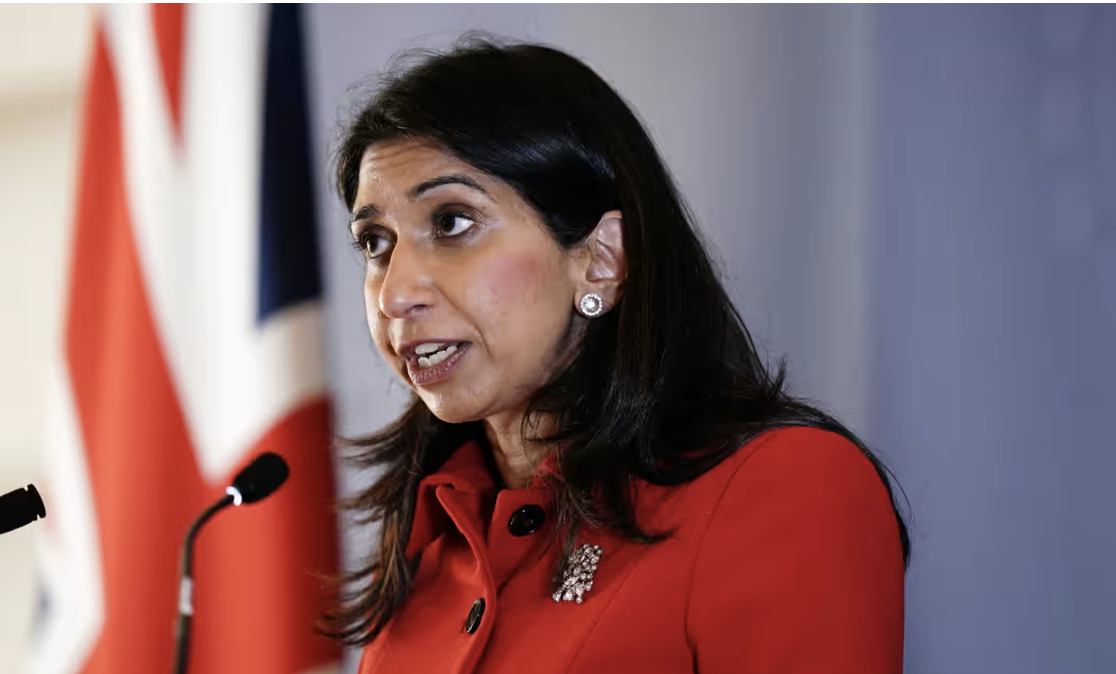Brexit, short for “British Exit,” refers to the historical event when the United Kingdom (UK) voted to leave the European Union (EU) in a referendum held on June 23, 2016. The decision sent shockwaves through the global political and economic landscape, making it a significant and contentious topic for discussion. This essay explores the background, causes, implications, and potential outcomes of Brexit.
Table of Contents
Lords Committee Raises Concerns
The UK’s hard-fought post-Brexit policing pact with the European Union, which facilitated the exchange of vital law enforcement data, is now facing potential jeopardy. The House of Lords Justice and home affairs committee, chaired by Lady Hamwee, has voiced serious apprehensions about the impact of Suella Braverman’s migration laws on the security cooperation elements of the Brexit trade deal. The committee expressed concern that the new legislation, along with certain data laws, could lead to the suspension or termination of critical security arrangements included in the trade and cooperation agreement (TCA).
Brexit Withdrawal Agreement Revisited
The warning from the House of Lords committee bears similarities to the UK’s previous confrontation with the European Union over the Brexit withdrawal agreement and the Northern Ireland protocol bill. The UK’s decision to potentially override parts of the agreement strained Brussels-London relations and led to threats of trade deal cancellation. Now, with the introduction of new migration laws, the concern is that the UK could breach its obligations under the European Convention on Human Rights (ECHR), which forms the foundation of the TCA.
Legal Consequences and Criticisms
The recently enacted illegal migration act has come under heavy criticism for its perceived incompatibility with the UK’s obligations under various international conventions, including the ECHR. Critics argue that the act could lead to violations of individuals’ ECHR rights, especially concerning refugees arriving in the UK via small boats. The act’s provisions could result in detention and potential deportation to Rwanda, denying refugees their legitimate right to a fair legal assessment for asylum claims.

Impact on Policing and Cross-Border Crime
Experts warn that the potential suspension or termination of the justice chapter in the trade deal could have severe consequences for policing crime in the UK. As criminal activities become increasingly transnational, access to EU databases containing crucial information such as fingerprints, DNA, and criminal records is vital for the pursuit of justice. Moreover, the UK’s capacity to fight cross-border crime could be significantly impeded if cooperation with the EU is compromised.
The Fragile Balance of Security Cooperation
Migration lawyer and academic Elspeth Guild, who advises prominent EU institutions, has raised concerns about the legality of the new migration laws. Given the level of criticism within the UK, at the Council of Europe, and from UN agencies, it is highly likely that the EU will be compelled to act on this matter. The TCA empowers the EU to suspend security cooperation should the UK’s actions disregard the ECHR or fail to uphold human rights protections domestically.
The Road Ahead and Implications
The potential consequences of the migration laws on the security cooperation aspect of the Brexit trade deal are wide-ranging. Not only could the UK’s ability to extradite fugitives from other EU countries be jeopardized, but the overall pursuit of justice could be severely impacted. The Home Office has yet to respond to these concerns, leaving uncertainty over the future of policing cooperation between the UK and the EU.
In conclusion, the UK’s post-Brexit policing pact with the EU, allowing for the sharing of vital law enforcement data, is facing an uncertain future due to concerns surrounding Suella Braverman’s migration laws. The House of Lords committee’s warning highlights the potential risks to security cooperation outlined in the TCA if human rights obligations are disregarded. With the implications reaching far beyond domestic borders, the need for a balanced approach to migration and security cooperation is more critical than ever.












